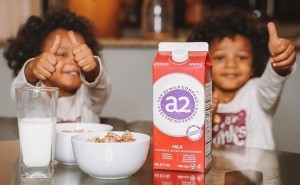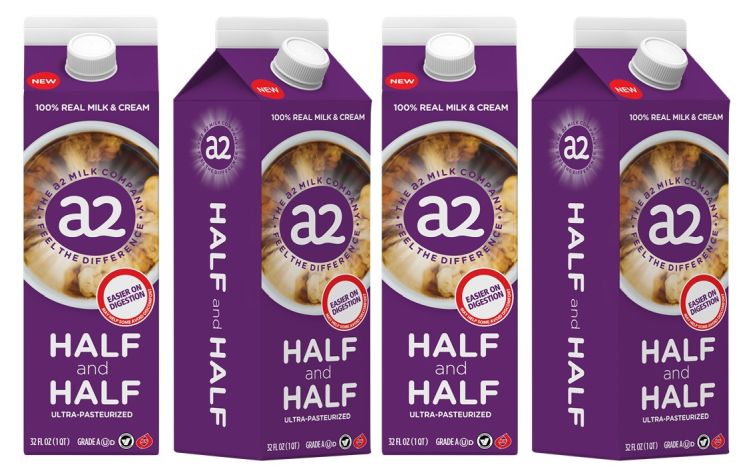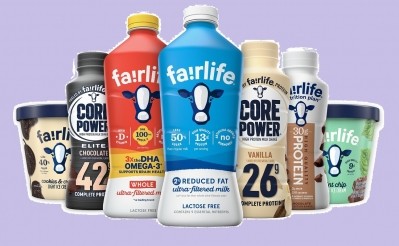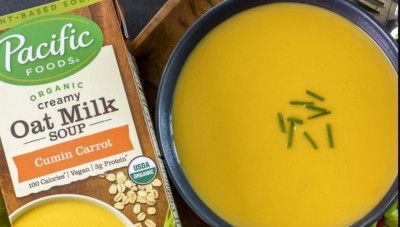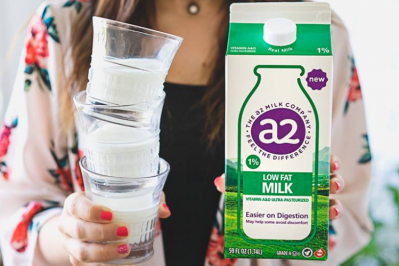The a2 Milk Co US CEO: 'This is going to be a very significant segment of the dairy category...'
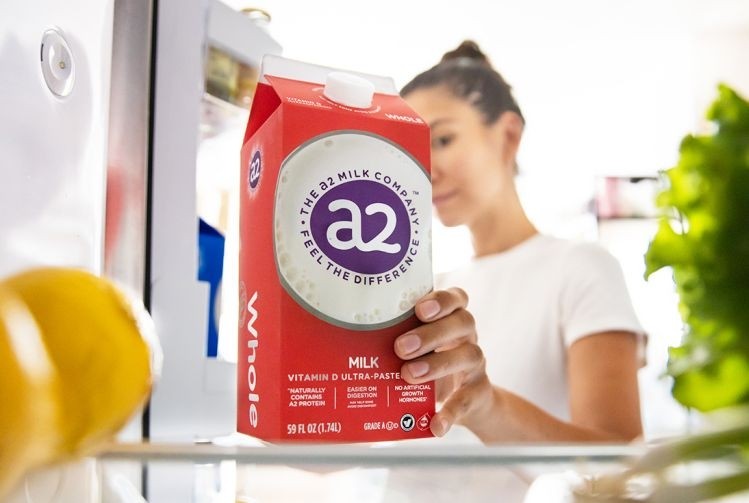
While the wider dairy industry has given The a2 Milk Co a pretty lukewarm reception, said US CEO Blake Waltrip, retailers are very enthusiastic about the brand, which is one of the key drivers of growth in the fluid category along with other functional or premium brands such as Fairlife and Maple Hill.
“I firmly believe this [A2 dairy] is going to be a very significant segment of the dairy category in the coming years. It's going to be a very large category and there will be room for a number of players. We’re in over 22,000 doors at this point, at every major retailer, and really the pitch to retailers is that we're growing the category, we're bringing premium margins,” Waltrip told FoodNavigator-USA.
“Our loyalty is strong enough that if a consumer can't find a2 Milk [which posted a 22.3% increase in net revenues to $34.2m in the 6 months to Dec 2020 and an $11.6m loss], they'll come back and wait to buy their a2 Milk if it’s out of stock, they won’t just buy something else, and there's not a lot of brands that can say that.”
He added: “During COVID, we saw all tides rise, even conventional milk grew as people were at home more, kids weren’t at school and so on, but now we're seeing the return of pre pandemic trends and conventional milk is declining again, whereas we’re still growing in the double digits.
“It's amazing if you think about it, because five years ago, hardly anyone [in the US] had even heard of it.”
Clinical evidence: Four human clinical trials conducted in China, Europe and the US on a2 Milk have been published in peer-reviewed journals over the past few years, with the most recent study (2020) led by Dennis Savaiano at Purdue University, an expert in lactose intolerance.
While the study was funded by The a2 Milk Co, said US CEO Blake Waltrip, "Once we fund a study, we have to step back and stay at arm’s length."
- 2014 study, European Journal of Clinical Nutrition (41 subjects)
- 2016 study, Nutrition Journal (45 subjects – our coverage HERE)
- 2017 study, Nutrition journal (600 subjects)
- 2020 study, Nutrients (33 subjects)
Four human clinical trials
The a2 Milk Company – which is based in New Zealand but made a big push into the US market in 2015 - has developed a genetic test to identify cows that only produce A2 beta casein protein (most milk contains A1 and A2), so their milk can be segregated and marketed as a more ‘tummy-friendly’ option.
Around 30% of cows produce just A1, and 30% just A2, with the rest producing both. However, as milk from all of these cows goes into the same pool, ‘regular’ milk typically contains A1 and A2, explained Waltrip, who claimed that A1 may be responsible for digestive discomfort experienced by milk drinkers that cannot be attributed to lactose intolerance or milk allergy (both of which can be determined via diagnostic tests).
Four human clinical trials on A2 milk have been published in peer-reviewed journals over the past four years that lend credence to Waltrip’s claims that many consumers who believe they can’t tolerate lactose (milk sugar) should really be blaming their digestive discomfort on the A1 beta casein protein in milk.
While The National Dairy Council still argues that the evidence for A2 is still preliminary, and The a2 Milk Co brand’s reception in the dairy industry has been "lukewarm at best,” said Waltrip, consumers don’t need to read peer-reviewed journals to determine whether A2 milk works for them: “All they have to do is try it and see how they feel. We’re not asking them to make a leap of faith.”
Brand is bringing in new and lapsed consumers to the dairy milk aisle
That said, what has become clear as the a2 brand has continued to grow in the US, he said, is that consumers aren’t just buying it for digestive reasons.
“We’ve done some research that shows us that a2 Milk is bringing incrementality to the category, it's bringing new and lapsed users back to milk. But one of the more interesting things we've seen is that consumers are seeing the brand as a better milk.
“So when we first started out [in the US], we focused on testimonials from consumers that had real life experience and talked about the fact that people hadn't considered milk for a very long time often because it bothered their stomach and here was an opportunity for a product that was easier on digestion, so our tagline was ‘love milk again,’ kind of, come back to milk.
“But during the pandemic we moved into a tagline which is a little bit different, which was ‘Rethink your milk,’ because we saw an opportunity to drive trial and reach consumers that didn't know about us, and this was really effective.”
According to the a2 Milk Company: “A2 beta –casein protein is recognized as being the original beta-casein protein in cows. That is, originally all domesticated cows produced milk containing only the A2 protein.
“However, owing to a natural genetic mutation, another milk protein - A1 beta-casein protein - appeared in Europe and spread throughout global herds via modern farming practices. Research has shown that A1 and A2 proteins digest differently. Growing scientific evidence supports that the different protein fragments produced have an impact on aspects of digestive function and support the unique benefits of a2 Milk.”
Cows that naturally produce milk rich in A2 beta casein are identified using a non-invasive DNA test which analyzes a sample hair from the tail. These cows are then separated to form A2 herds and their milk is segregated in the supply chain.
'We’ve continued to increase our distribution throughout the pandemic'
He added: “We’ve continued to increase our distribution throughout the pandemic, but we also see opportunities to build out our proposition in our core channels, so it’s about getting more SKUs [into existing accounts].
“So we just launched a half and half product, which is exceeding our expectations for acceptances in terms of distribution, and we have a pretty robust innovation portfolio, so you should expect to see new products from us within the next six months.”

He did not provide details, but said: “You’ll probably see is both some milk adjacency categories as well as some categories that are not adjacent to fluid milk at all.”
Private label competition
The fact that major retailers (Costco and Ahold) have both launched private label A2 milk products validates the category, argued Waltrip, who said their entry had not had a major impact on The a2 Milk Co.
“That is something we always expected; we knew there would ultimately be competitors whether private label or local regional players, but we see this as the very beginning of our progress story, and the ability to extend this benefit structure to multiple categories is very exciting.”
As for pricing, he said, The a2 Milk company had “temporarily lowered price to an accessible premium price point, and we saw the kinds of lifts we expected from doing that. As we go forward, we will bring ourselves back to our original pricing on milk. There is going to be pressure in the dairy industry overall for price increases, anyway given the shipping costs we're seeing today.”
